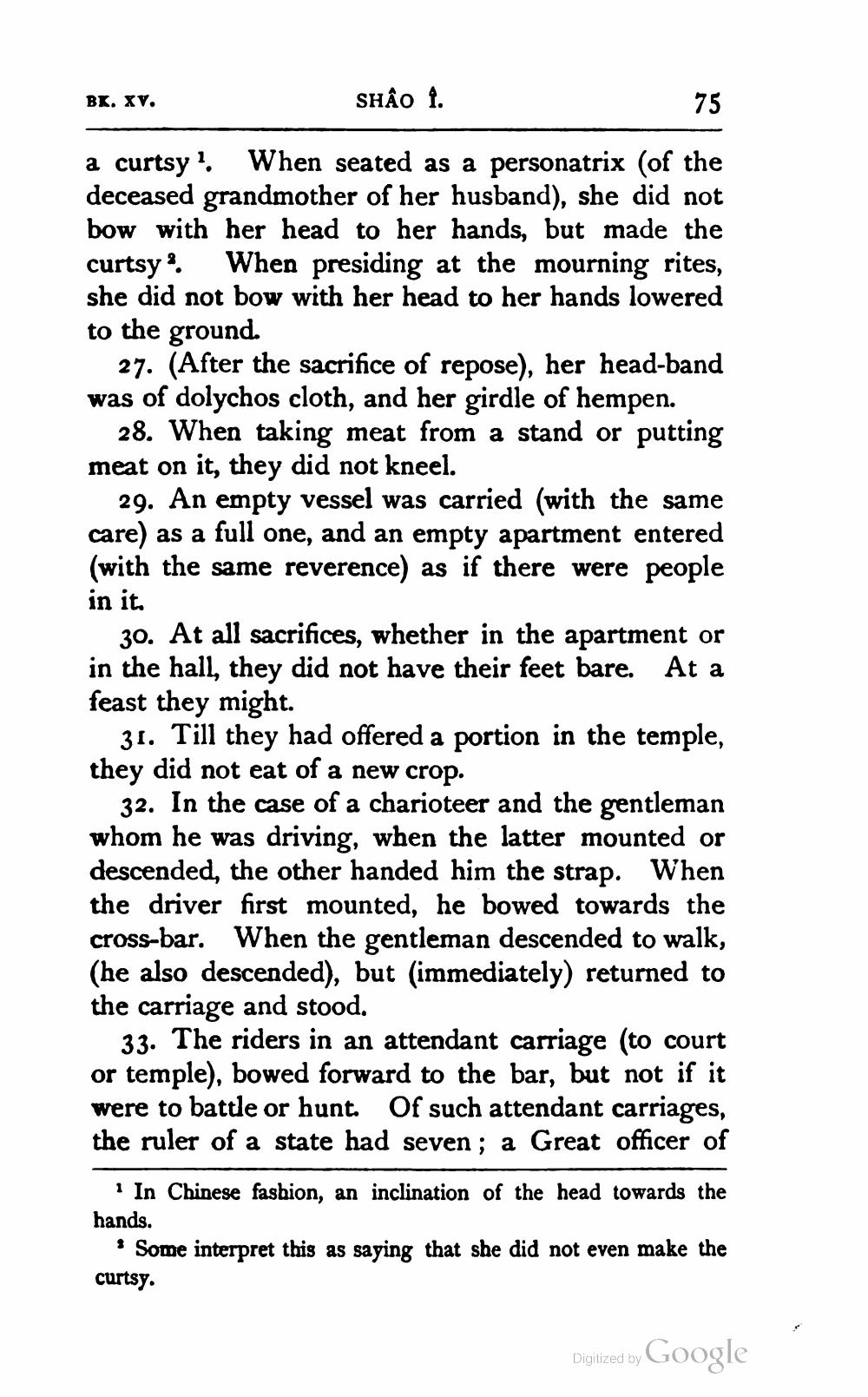________________
BK. XV.
SHẤo .
75
a curtsy! When seated as a personatrix (of the deceased grandmother of her husband), she did not bow with her head to her hands, but made the curtsy. When presiding at the mourning rites, she did not bow with her head to her hands lowered to the ground.
27. (After the sacrifice of repose), her head-band was of dolychos cloth, and her girdle of hempen.
28. When taking meat from a stand or putting meat on it, they did not kneel.
29. An empty vessel was carried (with the same care) as a full one, and an empty apartment entered (with the same reverence) as if there were people in it.
30. At all sacrifices, whether in the apartment or in the hall, they did not have their feet bare. At a feast they might.
31. Till they had offered a portion in the temple, they did not eat of a new crop.
32. In the case of a charioteer and the gentleman whom he was driving, when the latter mounted or descended, the other handed him the strap. When the driver first mounted, he bowed towards the cross-bar. When the gentleman descended to walk, (he also descended), but (immediately) returned to the carriage and stood.
33. The riders in an attendant carriage (to court or temple), bowed forward to the bar, but not if it were to battle or hunt. Of such attendant carriages, the ruler of a state had seven; a Great officer of
' In Chinese fashion, an inclination of the head towards the hands.
• Some interpret this as saying that she did not even make the curtsy.
Digitized by Google




